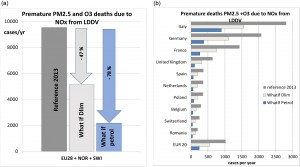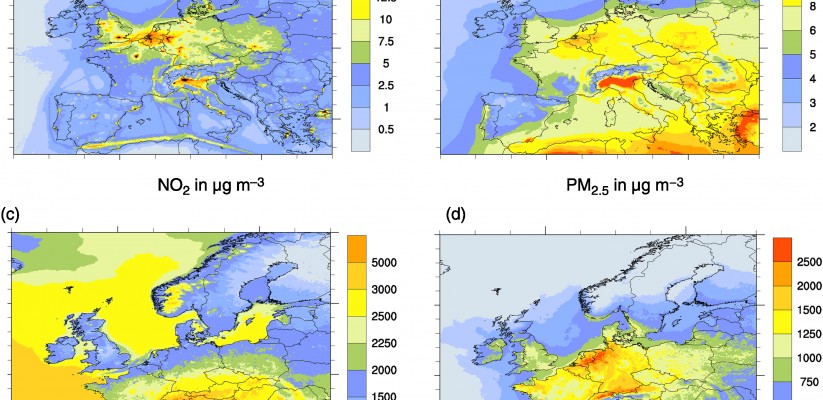Impact of excess NOx emissions from diesel cars on air quality, public health and eutrophication in Europe
Impact of excess NOx emissions from diesel cars on air quality, public health and eutrophication in Europe / J E Jonson, J Borken-Kleefeld, D Simpson, A Nyiri, M Posch and C Heyes. Environ. Res. Lett. 12 (2017) 094017 (11 p.) [formato PDF, 1,9 MB]. Open Access. DOI 10.1088/1748-9326/aa8850
Diesel cars have been emitting four to seven times more NOx in on-road driving than in type approval tests. These ‘excess emissions’ are a consequence of deliberate design of the vehicle’s after-treatment system, as investigations during the ‘Dieselgate’ scandal have revealed. Here we calculate health and environmental impacts of these excess NOx emissions in all European countries for the year 2013. We use national emissions reported officially under the UNECE Convention for Long-range Transport of Atmospheric Pollutants and employ the EMEP MSC-W Chemistry Transport Model and the GAINS Integrated Assessment Model to determine atmospheric concentrations and resulting impacts. We compare with impacts from hypothetical emissions where light duty diesel vehicles are assumed to emit only as much as their respective type approval limit value or as little as petrol cars of the same age. Excess NO2 concentrations can also have direct health impacts, but these overlap with the impacts from particulate matter (PM) and are not included here. We estimate that almost 10000 premature deaths from PM2.5 and ozone in the adult population (age >30 years) can be attributed to the NOx emissions from diesel cars and light commercial vehicles in EU28 plus Norway and Switzerland in 2013.

premature deaths in EU28 plus Switzerland, right.
About 50% of these could have been avoided if diesel limits had been achieved also in on-road driving; and had diesel cars emitted as little NOx as petrol cars, 80% of these premature deaths could have been avoided. Ecosystem eutrophication impacts (critical load exceedances) from the same diesel vehicles would also have been reduced at similar rates as for the health effects.
